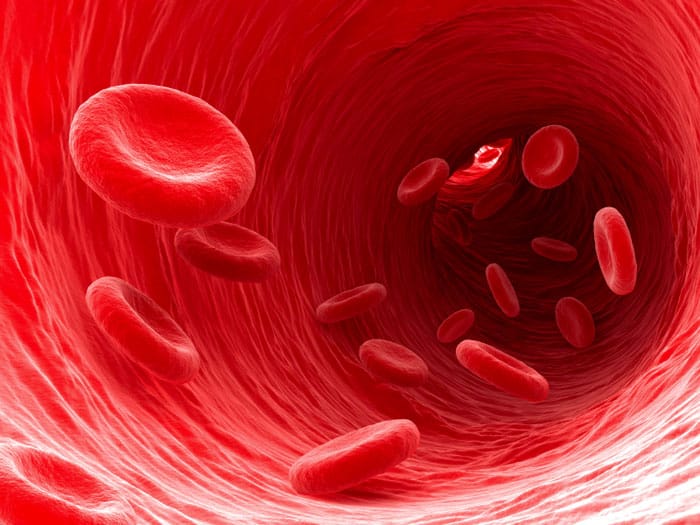9 Early Signs of Celiac Disease (Gluten Allergy)
Last updated 22/04/2020 by The pain clinics - Interdisciplinary Health
9 Early Signs of Celiac Disease (Gluten Allergy)
Here are 9 early signs of celiac disease and gluten allergy that allow you to recognize the disease at an early stage and get the right treatment. An early diagnosis is very important to be able to make the right decisions in relation to diet, treatment and adjustments in everyday life. None of these signs alone means that you have celiac disease, but if you experience more of the symptoms, we recommend that you contact your GP for a consultation.
Celiac disease is an autoimmune disease diagnosis in which the body's own immune system reacts strongly to gluten intake. As many know, gluten is a type of protein that we find in common grains such as rye, wheat and barley - and which thus means that it is quite common in the Norwegian diet due to the fact that we eat a lot of bread in this country. However, in celiac disease, the immune cells attack the gluten proteins in the small intestine and cause major inflammatory reactions, as well as possible damage to the small intestine. Many people suffer in silence when it comes to this diagnosis, so we want to do our part to promote general knowledge about this diagnosis.
Celiac disease can be very devastating to the affected person and can result in significantly reduced energy levels, everyday pain and impaired functionality - that's why we encourage you to Share this article in social media, Feel free to like our Facebook page and say, "Yes to more research on celiac disease". In this way, one can make the symptoms of this disease form more visible and ensure that funding for research on new methods of assessment and treatment is prioritized. We also recommend supporting the Norwegian Celiac Association.
We know that the previous signs of celiac disease can vary from person to person and thus point out that the following symptoms and clinical signs are a generalization - and that the article does not necessarily contain a complete list of possible symptoms that can be affected at an early stage of celiac disease, but rather an attempt to show the most common symptoms. Feel free to use the comment field at the bottom of this article if you miss something - then we will do our best to add it.
Also read: - 7 Exercises for Rheumatists
1. Flatulence

Inflated stomach and feeling swollen is one of the most common symptoms of celiac disease. This is due to inflammation of the digestive system due to a bodily immune response to gluten intake. A major research study with over 1000 participants showed that those affected by celiac disease found that bloated stomach was the most common symptom (1).
Among those affected by celiac disease, one would expect symptoms to subside quickly, often in less than seven days, when switching to a gluten-free diet. It is important to keep in mind that you may experience swelling in other conditions such as constipation, trapped gas and other digestive problems.
More information?
Join the Facebook group «Rheumatism and Chronic Pain - Norway: Research and news»(Click here) for the latest updates on research and media writing about chronic disorders. Here, members can also get help and support - at all times of the day - through the exchange of their own experiences and advice.
2. Itchy rash

Celiac disease can provide the basis for an intensely itchy rash that most often affects the elbows, knees and buttocks - this is called dermatitis herpetiformis. Among almost 20%, it is this symptom that makes you get the actual diagnosis. In certain, more rare, cases, this is the only symptom they have - even if they are suffering from celiac disease.
The itchy rash occurs as an allergic reaction to the intake of gluten and the subsequent immunological response of the body. Among other differential diagnoses that may cause a rash and itching are eczema, dermatitis, shingles and hives.
3. Diarrhea

Loose stomach and diarrhea can be one of the first symptoms of celiac disease. This is due to inflammation and irritation in the small intestine, which triggers a cascade of stomach symptoms - including an upset stomach and loose stools.
This is one of the most common symptoms of celiac disease - but it is also important to keep in mind that there may be other causes of loose stomach; such as infections, other food intolerances or digestive problems.
4. Gas, pain and flatulence

Many, with untreated celiac disease, are affected by gas and increased air circulation in the stomach. A significant increase is often experienced if the affected person ingests gluten in the form of bread, pastries or other foods with a grain content. Among the symptoms of celiac disease, this is perhaps among the least specific. This is because there are a number of other reasons why you suffer from an increase in air in the stomach - such as constipation, digestive problems, ingestion of air, lactose intolerance and irritable bowel syndrome.
5. Exhaustion and fatigue

Celiac disease is an autoimmune bowel disease. In other words, it is the body's own immune system that attacks the gluten proteins in the small intestine and thus starts an inflammatory reaction. Such an ongoing attack requires extensive use of resources and energy - which in turn goes beyond the energy level and daily form of the person affected. It is in a way like walking around with ongoing inflammation and disease in the body almost all the time - at least as long as it is the case that the person ingests gluten or has done so during the last days or weeks. Such ongoing disease processes can also lead to disturbed night sleep and thus reduced energy levels.
6. Iron deficiency - and low blood percentage (anemia)

Celiac disease can prevent the absorption of important nutrients in the small intestine - which in turn can lead to iron deficiency and low blood percentage (anemia). As mentioned earlier, many people with this disease also have diarrhea - and, naturally enough, this can lead to important nutrients and minerals not being absorbed into the body due to an impaired digestive process.
Characteristic symptoms of anemia - a lack of red blood cells - can be fatigue, weakness, chest pain, headache and dizziness. This can also lead to weaker bone structure due to mineral deficiency caused by celiac disease. Other causes of anemia are long-term use of aspirin (blood thinners), bleeding (for example during menstruation) or stomach ulcers.
7. Constipation

Celiac disease can cause both diarrhea and constipation. Many people associate this disease with diarrhea, but it is important to mention that it can also cause symptoms on the very other side of the scale; namely, constipation. With prolonged celiac disease and gluten allergy, this can lead to damage to the small intestine and intestinal structures that are responsible for absorbing nutrients from what you eat. The structures try to compensate for this, but can, in some cases, even attract too much moisture from the food - which then makes the stool too hard (due to the moisture being pulled out of it). And it is this hard stool that causes constipation.
Many people forget to supplement with fiber when they switch to a gluten-free diet - due to the fact that their main intake previously consisted of bread and grain products. Of food products that have a high content of fiber, but which do not have gluten, we mention, among other things:
- Beans
- Green vegetables
- coconut
- More
- artichoke
- broccoli

- sweet potato
- Brown rice
Physical inactivity, dehydration and poor diet can cause constipation.
8. Depression

Research has shown that celiac disease is linked to higher rates of depression. As those affected by long-term stomach problems know - it is tiring and requires a lot of those who suffer from the disease. This is because long-term inflammatory reactions require a lot of the immune system and this actually also requires physical energy. Other possible causes of depression and anxiety are stress, grief and changes in hormone levels.
9. Weight loss

The structures responsible for nourishing the food you eat can be damaged by celiac disease. Due to damage to these structures in the small intestine, this can lead to both malnutrition and unintentional weight loss. When changing diet - to a gluten-free diet, it is very common for those who are affected to put on several kilos due to the fact that they now absorb nutrients in an improved way. It is important to remember that unintentional weight loss can also be due to very serious conditions such as diabetes, cancer, depression and metabolic problems.
What can you do if you have celiac disease?
- Collaborate with your GP and study a plan for how you can stay as healthy as possible, this may involve:
Reference to imaging diagnostics
Referral to a medical specialist
diet Adaptation
Customize everyday life
Cognitive processing
Training programs
Feel free to share in social media
Again, we want to ask nicely to share this article in social media or via your blog (please link directly to the article). Understanding and increased focus is the first step towards a better everyday life for those affected by celiac disease and gluten allergy.
Celiac disease is an autoimmune bowel disease that can be difficult to detect. Many people are affected without receiving the right treatment - and that is precisely why we consider it very important that the general public is aware of early symptoms and signs of this disease. We kindly ask you to like and share this for increased focus and more research on celiac disease. Many thanks to everyone who likes and shares - it means an incredible deal to those affected.
Suggestion:
Option A: Share directly on FB - Copy the website address and paste it on your facebook page or in a relevant facebook group you are a member of. Or press the "share" button below to share the post further on your facebook.
A big thank you to everyone who helps promote increased understanding of celiac disease and gluten allergy!
Option B: Link directly to the article on your blog.
Option C: Follow and equal Our Facebook page
Also read: - Researchers Have Made An Exciting Finding Regarding The Cause Of Gluten Sensitivity!
NEXT PAGE: - 6 Early Signs of Lyme Disease
Click on the image above to proceed to the next page.
Sources:
- Presentations of adult celiac disease in a nationwide patient support group. Dig Dis Sci. 2003 Apr;48(4):761-4.
 Follow Vondt.net on YOUTUBE
Follow Vondt.net on YOUTUBE
(Follow and comment if you want us to make a video with specific exercises or elaborations for exactly YOUR issues)
 Follow Vondt.net on FACEBOOK
Follow Vondt.net on FACEBOOK
(We try to respond to all messages and questions within 24-48 hours. We can also help you interpret MRI responses and the like.)








There is no such thing as gluten allergy, but wheat allergy does exist. Many people say they have gluten allergy, but gluten is not an allergen. Calling celiac disease gluten allergic is wrong.